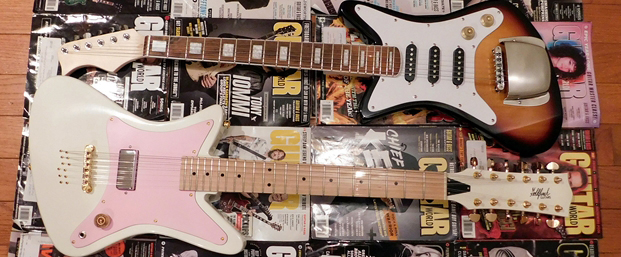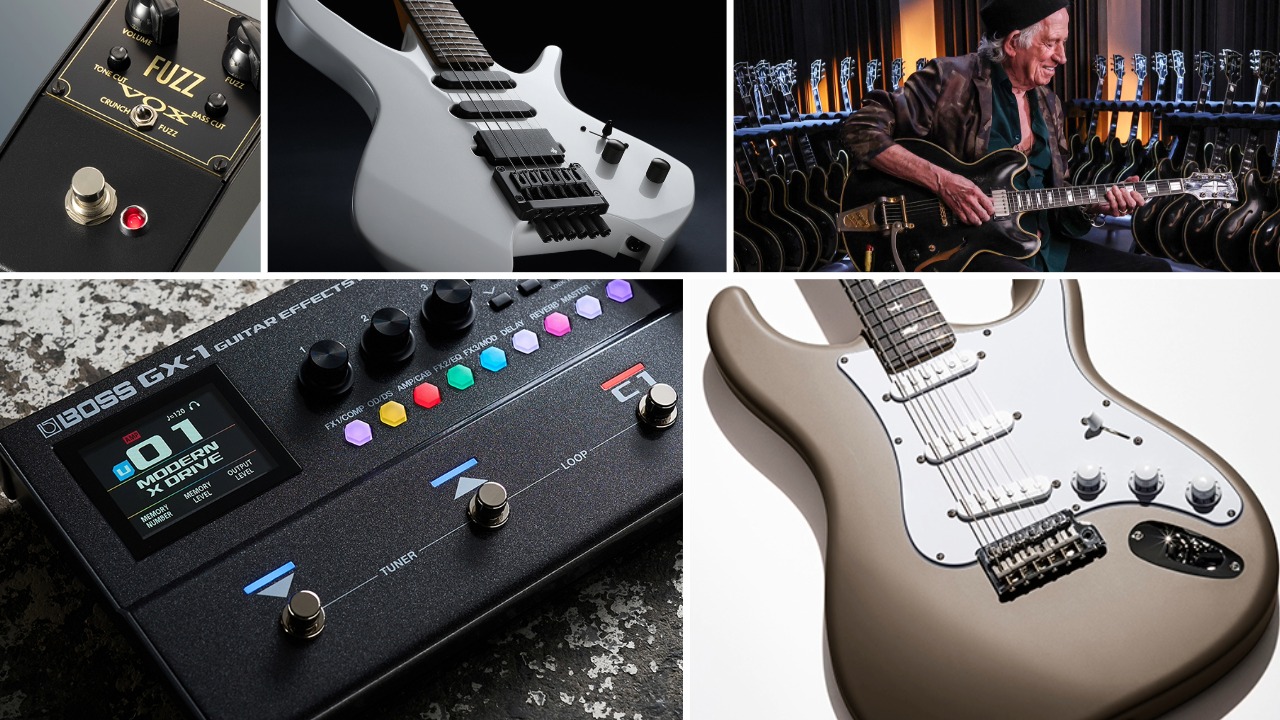Gear Review: Goldfinch Guitars Kensington, Painted Lady Rhythm Master

Just like Harley Davidson and Apple, Goldfinch Guitars started out in a garage. Rather than build an expensive clone of something you’ve already seen, Goldfinch wanted to give guitarists an affordable piece of art that captured one sound well without an abundance of knobs and switches.
First up is the Kensington, which gets its name from the Philadelphia neighborhood it was designed in. Other models on the Goldfinch site are listed as limited runs, but the Kensington is here to stay. It features the company’s signature funky reverse headstock, a poplar body and a chunky maple neck. The fretboard is engineered to prevent travel woes.
The Kensington was designed with rhythm players in mind, so shredders should plan accordingly. In fact, no matter how hard you try, you’re not going to get past the 18th fret! Despite the “No high notes allowed” rule, it is a very easy and lightweight guitar to play. Even easier than its playability are the electronics. You’ll notice no pickup switches. With just a volume and a tone knob all three pickups are wired in parallel. The end result is like a loud and bright mega-humbucker!
Next up is The Painted Lady Rhythm Master. Part of a limited run, this is Goldfinch’s first 12 string electric. Following suit of the Kensington, The Painted Lady Rhythm Master has even simpler electronics; a mini-humbucker and a single volume knob. Other features include a poplar body, a set mahogany neck and a maple fretboard. Also, I can’t keep quiet about the Explorer-like body with a matte pink pickguard, it just looks too cool.
While the company has offered some USA-built instruments, both models I reviewed were built in China. Straight out of the box, the necks, frets and action were exceptional on both guitars. I could’ve easily gigged with The Kensington that night. The Painted Lady Rhythm Master needed a few tweaks to the bridge to get the intonation set, but 12 strings are notoriously fussy.
Clip 1: This starts with the Kensington through a Fender Blues Junior about halfway up, followed up with the tone and volume rolled back on the Kensington. To finish up I cranked the volume and tone back and put a Tube Screamer in front of the amp for some overdrive.
Clip 2: Here’s how The Painted Lady Rhythm Master sounds with some slowly picked open chords, which give it a natural chorus effect. At the end of the clip I double-tracked a riff and an open A chord, like I was trying to write my own Sixties TV theme or something.
All the latest guitar news, interviews, lessons, reviews, deals and more, direct to your inbox!
Learn more about the Kensington ($249) and the Painted Lady Rhythm Master ($425) at goldfinchguitar.com.
